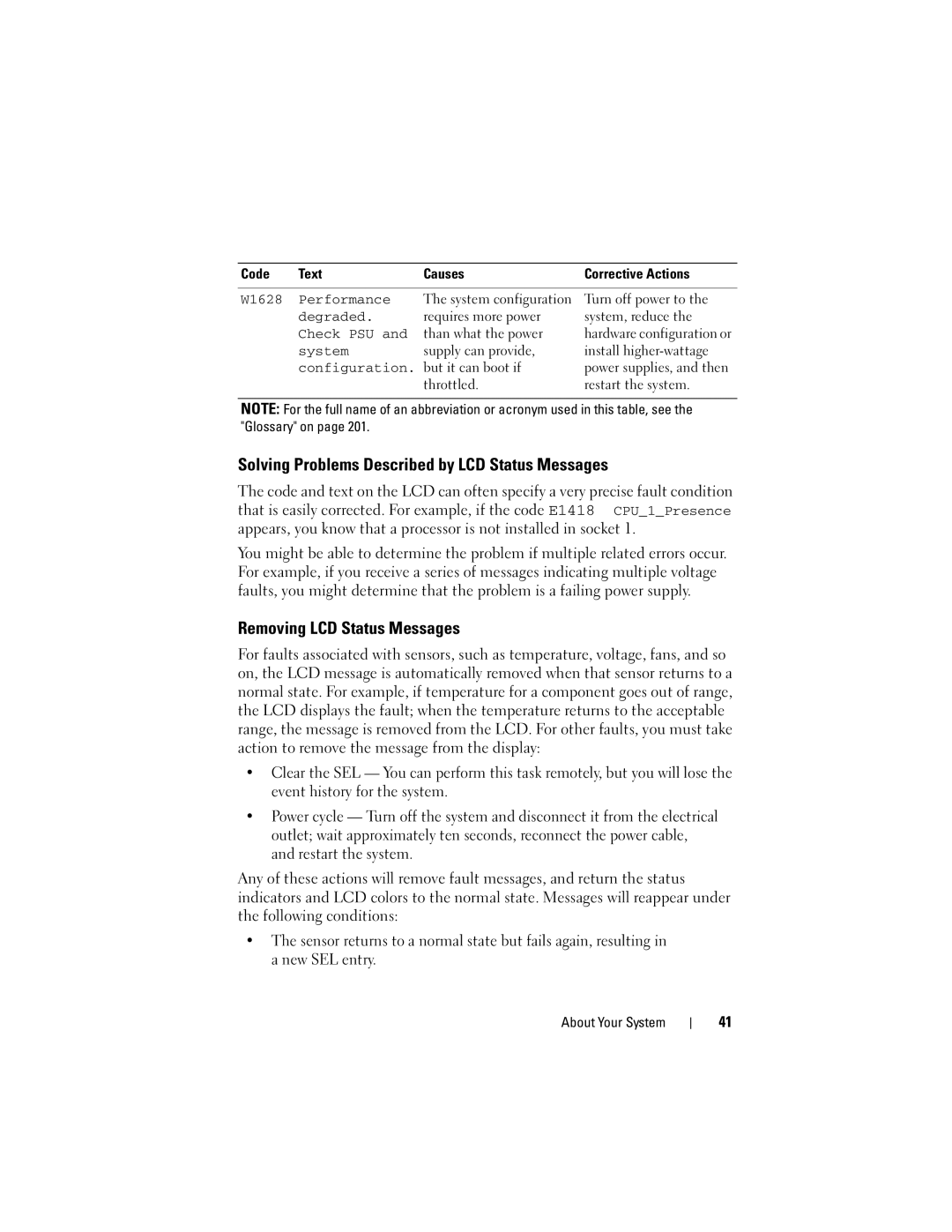
Code | Text | Causes | Corrective Actions |
|
|
|
|
W1628 | Performance | The system configuration | Turn off power to the |
| degraded. | requires more power | system, reduce the |
| Check PSU and | than what the power | hardware configuration or |
| system | supply can provide, | install |
| configuration. but it can boot if | power supplies, and then | |
|
| throttled. | restart the system. |
NOTE: For the full name of an abbreviation or acronym used in this table, see the "Glossary" on page 201.
Solving Problems Described by LCD Status Messages
The code and text on the LCD can often specify a very precise fault condition that is easily corrected. For example, if the code E1418 CPU_1_Presence appears, you know that a processor is not installed in socket 1.
You might be able to determine the problem if multiple related errors occur. For example, if you receive a series of messages indicating multiple voltage faults, you might determine that the problem is a failing power supply.
Removing LCD Status Messages
For faults associated with sensors, such as temperature, voltage, fans, and so on, the LCD message is automatically removed when that sensor returns to a normal state. For example, if temperature for a component goes out of range, the LCD displays the fault; when the temperature returns to the acceptable range, the message is removed from the LCD. For other faults, you must take action to remove the message from the display:
•Clear the SEL — You can perform this task remotely, but you will lose the event history for the system.
•Power cycle — Turn off the system and disconnect it from the electrical outlet; wait approximately ten seconds, reconnect the power cable, and restart the system.
Any of these actions will remove fault messages, and return the status indicators and LCD colors to the normal state. Messages will reappear under the following conditions:
•The sensor returns to a normal state but fails again, resulting in a new SEL entry.
About Your System
41
